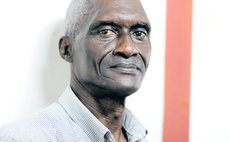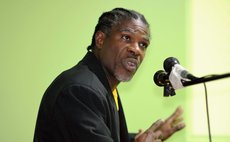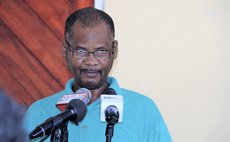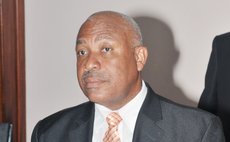Reflections on Government and Opposition and How They Influence THE SOCIAL ORDER
By Alfred C. Leevy, Retired Permanent Secretary
My main purpose in writing this article is to highlight certain negative political behaviour patterns, which have had the effect of weakening the fabric of Dominican society, and to point out pathways that could facilitate the cultivation of better relations between Government and the Official Opposition. A subsidiary intention is to show that the social cohesion, which all right thinking persons yearn for, can be realized through the exercise of a quality of leadership able to rise above parochial thought patterns.
We live in a culture where it is traditional for Government to see the Opposition as incorrigibly unfriendly to the ruling party, and where the latter is viewed as not adequately equipped to satisfy the needs of the masses. It seems to be a difficult exercise indeed to trace the origin of these two rigid and seemingly irrational positions, but it is abundantly clear to this writer that they constitute the basis for a continued adversarial pattern of relationship. It is indeed a reasonable assumption that the official opposition was initially conceived of as an institution that would serve to oppose a move by the ruling party, which is not in the public interest. But it is unreasonable to assume that it was and is intended to oppose any move by Government in its genuine quest to improve the general welfare of the people. The opposition must be responsible and an opposition party must at all times avoid making utterances at home and abroad that can do more damage to the national interest than the ruling party it seeks to unseat.
The phenomenon of opposition to government does not reside solely outside the domain of the ruling party. It can at any time arise within or creep into the chamber of the party in power to its great embarrassment. When this happens, Government, in an effort to ward off the possibility of an implosion and ensure its continued survival, could resort to bargaining and the making of concessions to the dissenting elements within its ranks. If, however, the leader has the support of the vast majority of those forming the ruling party, he or she could take the chance of expelling the few dissenters and make necessary arrangements for their replacement. A precedent for the exercise of this last-mentioned option was set about five decades ago. In that instance there were three dissenting ministers who were dismissed from office.
Opposition is inevitable and necessary. It can be constructive as well as destructive, but must never be allowed by the governing authority to get out of control. In seeking to curb the Opposition, the powers that be, must, however, ensure that they avoid excesses and show respect for the legal and human rights of dissenters.
It is a rare occurrence, but when government is faced with a combination of internal and external opposition, this is a crisis that may necessitate a change in leadership of the government or that may even sound the death knell of the party in power. Of course, the same outcome could be brought about with a strong external opposition supported in its cause by the majority of the electorate.
A pressure group, whether independent or allied with the Official Opposition, may have a specific concern to raise with government, which the latter would want to dismiss as relatively unimportant. But government should not be quick to dispose of the matter, as even a spark of discontent by the pressure group, if not extinguished in a prudent and timely manner, could dramatically escalate into a conflagration with disastrous results.
It must be understood that no government is invincible and that every government under the sun is subject to the Supreme Provider of power. And it must never be forgotten that power belongs to God (Psalm 62:11), and a government can only successfully operate according to the will and at the pleasure of the One, who is the Supreme Ruler over all of His creation.
All right thinking persons would like to see a healthy relationship between the Government of Dominica and the Opposition, which would be conducive to a growing constructive partnership. Regrettably, the existing political culture leaves much to be desired. But this must not be seen as an isolated phenomenon, being the result of the failure of successive governments, accompanied by the seemingly irresistible intrusion of negative foreign influences, to work towards the building of a more civil, tolerant and peaceful society.
More-over, as the result of the underdeveloped physical and social infrastructure inherited from our former colonial masters, there has been a rather heavy emphasis, albeit justified, on development projects. This has left little time for paying close attention to working for the systematic eradication of undesirable social attitudes and the evolution of a generally accepted national philosophy. The sad truth must be faced that the seeds sowed over the past decades have produced an unfriendly harvest, to say the least.
It is not, however, fiendishly difficult at this stage of our march as a young nation to recapture the glories of a social ethos that was in evidence prior to the 1970's. And it is comforting indeed that our society is not beyond redemption. As a matter of fact, church and state are now presented with a splendid opportunity to collaborate in what must be seen as a "rescue operation".
Government, as the holder of power, must have its way, as long as its action is legitimate, but other players should have their say in a democracy such as ours. And Government needs to accept that it is not an admission of incompetence for it to adopt and put into practice an idea coming from the Opposition, which is clearly in the public interest. Government, not being inerrant, will occasionally commit a blunder in its decision making, and when this happens, it is expected to admit its mistake. It is not, however, easy for any government under the sun to admit that it has gone wrong in a matter, without having to resort to a face-saving device. Government is about power and it does not want the open admission of a mistake to be construed as a sign of weakness on its part.
A failure, however, to pay due attention to the voices of protest against a perceived indiscretion committed by a government, would obviously have the effect of worsening relations between the Opposition and Government. Moreover, it may be interpreted as a blatant lack of respect for the citizenry and democratic practice.
Government must give due consideration to the possibility that it may take a step which is constitutional but not palatable to the majority of its supporters. When this happens, one tempting way out of this embarrassing situation, is to appease the aggrieved persons by resorting to appropriate diversionary tactics. Prudent thinking could, however, prevent such an eventuality.
Government must accept that the authority it wields is not synonymous with self-sufficiency in intellectual prowess and that the existence of an entity, such as a national THINK TANK, would be a reliable source of vital information and sound advice which could be useful in the business of running the country. But if such a facility is to be credible, it must include qualified representatives of different segments of civil society, regardless of political affiliation. This entity would obviously serve as a major contributor to the process of arriving at a consensus in the national planning process, and would help strengthen the practice of democratic governance.
The powers that be may wish to adopt the idea of a national THINK TANK and consider its establishment as a matter of high priority.
With regard to the Official Opposition, Government must view it as an indispensable factor in the democratic process. The Opposition, as would be expected, stands ever ready to fill a power vacuum that could result from the defeat of the ruling party at the polls, or that can be created by a crisis, rendering the party in power incapable of functioning as Government. And any opposition party worth its salt should be conducting itself in such a manner as to earn the respect and confidence of the populace.
It happens invariably that when Government does something good, the Opposition is reluctant to show its appreciation for same, preferring to come up with an alternative way in which it thinks a better result could have been achieved. But this is politics, and while it may be a universal practice, it falls far short of being a virtue. It is therefore evident that honesty is not a commodity which is tolerated or cherished in the realm of politics. Honesty, like truth, may, however, be embraced only when this is convenient. No wonder that George Bernard Shaw defined politics as "the last refuge of scoundrels."
It should be observed at this juncture that while the cherished principle of collective responsibility in government guarantees loyalty to the ruling party, it can also serve to stifle the voice of truth and produce a seared conscience, unless one is guided by a commitment to the highest standards of morality. "To thine own self be true" is a timeless and undying principle that men of integrity must uphold, though the heavens should cave in.
The current political culture of Dominica is not a source of pride to its citizens, to say the least. A new climate of relations between the political parties would certainly help in bringing much needed healing to a nation, sadly divided by political tribalism. Love of power should be made to take a back seat, and love of country must be given pride of place.




